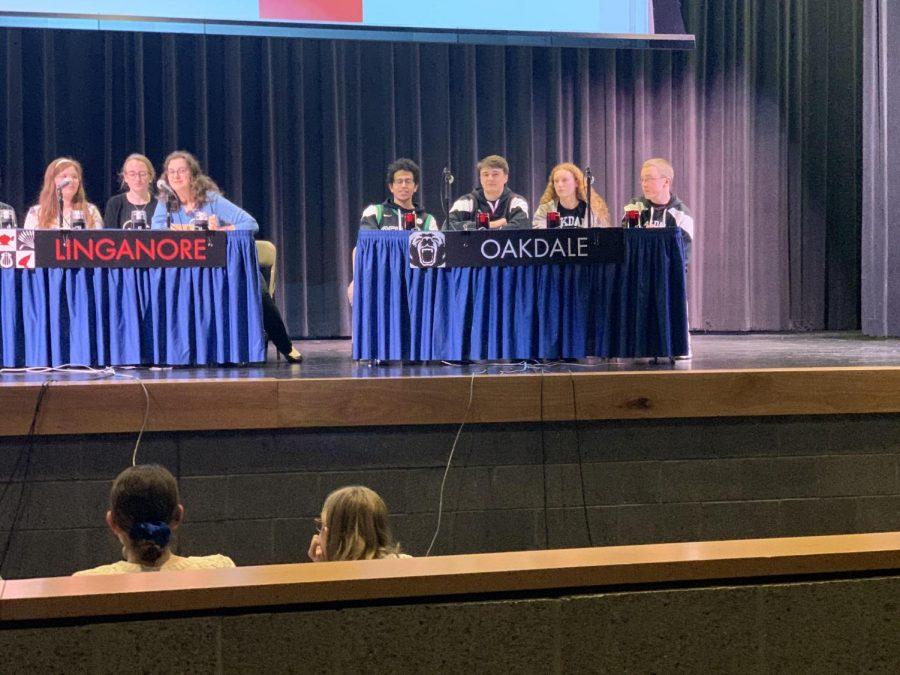Academic Team
Seniors Ali Aboeleta, Jackson Meade, and Tanner Appleby prepare to take on Linganore.
February 6, 2020
It’s academic team season, and that means every Friday night at Frederick High School, twelve students step up to compete, answering rigorous trivia questions.
The competition is county-wide, allowing all ten high schools in the county to compete. Four competitions occur each Friday, in which three teams of four students from each of their respective schools will be asked questions on various topics.
One of the team’s advisors, Nathan Smarick, states that the competition is similar to Jeopardy, a popular game show. It differs in a few ways, the most noteworthy being that the competition is in teams instead of individually, as seen on the show, and that the players aren’t required to answer in the form of a question.
Oakdale’s team hopes to win their first county title this season, as the newest high school in the running. Many challenges are in effect for each team because the level of competition is advanced in Frederick County.
Another of the team’s advisors, Jen Morganthaler, admits that, in terms of competition, “Frederick High is very tough, and generally Urbana and Walkersville.” Morganthaler also points out that schools with larger bodies of students in their program tend to succeed more often, saying that “there are schools that have tremendous amounts of kids.”
One of the most important factors in competing is the group of students that are selected by the team to compete. Senior Ali Aboelata, who is competing for his fourth year on the team, mentions that they “have to get people with different specialties to go up together so [they] can cover a broad range of topics.”
The topics can include basic subjects such as math or physics, or even include more unique topics such as Star Wars, 90’s music, or World War II. These topics give students more opportunities to learn about subjects that may interest them, but haven’t come up in a typical classroom environment.
Senior Bella Holman says that “the different topics each week are cool.”
The competitions are a lot to prepare for, so practices are certainly imperative. The team practices twice a week, each time trying to simulate the competition. The players break up into teams or compete individually for more practice and answer questions recited from a thick binder containing thousands of questions that could be realistically asked in a competition scenario. Smarick mentions that practice is all about trying to work on speed and accuracy.
Despite the pressure of preparing for big competitions, Smarick remarks that practices can be quite lively. “I sometimes will play against the students in practice,” he states, adding that they don’t keep score, so it is all for fun.
All sources interviewed mentioned that building the program will be very beneficial for the team in the future. Aboelata says, “I would encourage others to join the team because it’s fun: practices are fun, matches are fun, and literally anyone can join. You don’t have to be a genius to join.”





























